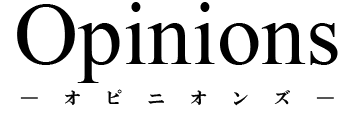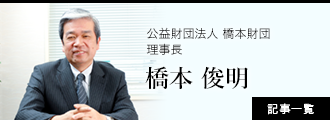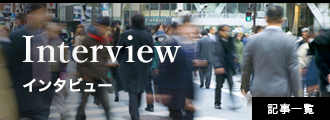
- 記事一覧
- ゲストライター記事一覧
- 外国人住民の信仰と共生の意義:茨城県の宗教施設多様化とその役割
外国人住民の信仰と共生の意義:茨城県の宗教施設多様化とその役割

※英訳は、日本語文の後に掲載しています。
筆者は、2023年からインドネシアの送り出し機関に関する調査や日本における受け入れ体制の調査を行っている。
2024年11月に茨城国際交流協会を対象として行った研究調査では、日本の多文化共生の未来において、日本人が外国人の文化や習慣を理解する重要性が強調された。現在の多文化共生に向けた活動は、単なる交流の場を提供するだけでなく、共に生活する上での課題を認識し、それらの解決に向けた具体的な取り組みが求められている。これは、日本社会において、言語や習慣、さらには意識の壁を取り除く努力が必要であることを示している。
外国人住民の多くは母国で培った信仰を日本でも継続し、集団で宗教的な儀式や集まりを行っている。このような宗教的習慣は異国での生活において精神的支えとなり、帰属意識を育む重要な役割を果たしている。エミール・デュルケームの社会的連帯理論によれば、宗教は共有された信念や価値観を通じて共同体内で個人を結びつけ、社会全体の一体感を高める力を有している。したがって、宗教的儀式や慣習は、異国の地でも精神的支えと帰属意識を提供し、日常生活における安心感をもたらすものである。
茨城県では外国人住民の増加に伴い、イスラム教のモスク、ヒンドゥー教の寺院、仏教寺院、インドネシア人コミュニティが運営するキリスト教会などの礼拝施設が整っている。これらの施設は外国人住民が安心して信仰を守り、宗教的活動に参加できる環境を提供している。たとえば、インドネシア最大のイスラム団体ナフダトゥル・ウラマは2021年に古河市にモスクを設立した。また、スラウェシ島のマナド族が設立したプロテスタント教会は大洗市に複数存在し、長年にわたりインドネシア人の精神的な支えとなっている。礼拝施設は礼拝の場に留まらず、インドネシア人コミュニティの集会の場としても機能しており、職場環境の悩みや生活上の課題を相談できる重要な場となっている。これは、信仰を通じた心身の癒しやコミュニティの連帯感を支える役割を果たしている。
また、古河市のインドネシア人モスクから車で約10分の長岡市に位置する光明台霊園には、ムスリム向けの墓地が整備されている。神社が所有するこの墓地は、2010年7月2日に「Muslim Graveyard Ibaraki, Japan (MGIJ)」として建設され、ムスリム専用の土葬用墓地として60区画が用意された。日本全国でムスリム向けの墓地提供に対しては批判の声が上がることが少なくないが、光明台霊園では古くから土葬の風習が根付いていたため、反対意見が全く出ず、地域社会にも自然に受け入れられている点が特筆すべきことだ。
しかし、外国人住民の宗教活動が地域社会で誤解を招く場合もある。たとえば、炊き出しや衣類提供などの支援活動が「布教活動」や「怪しい団体」と見なされることがある。また、外国人技能実習生が礼拝活動に参加する際、「神に祈っても給料はもらえない」という発言がされる場合があり、こうした偏見の解消が課題である。今後は、地域の外国人宗教団体をリスト化し、地域住民との連携を強化することが求められる。自治体が外国人宗教団体と協力し、地域社会に貢献するための情報を共有することは重要である。外国人住民も地域社会の一員として受け入れられるようサポートされるべきである。
茨城県の現状と課題は、他の地域にとっても有益な情報となる。外国人コミュニティが日本社会に貢献し、正当に評価されることが多文化共生の進展には不可欠である。茨城県での取り組みは全国の多文化共生活動の一助となり、異なる文化と信仰が共に共生できる社会の実現を目指す上で意義深いものである。
日本における政教分離の原則は、宗教と行政を分けることを基本としているが、外国人住民が増加する中で多文化共生を促進するためには、行政機関と外国人コミュニティの連携が重要である。特に外国人によって設立された宗教コミュニティは、文化的・精神的支援の場として重要な役割を果たし、これを通じて外国人住民は互いに助け合い、地域社会に溶け込むための基盤を築いている。宗教的ネットワークと行政が情報を共有し、協力体制を築くことで、外国人住民の生活支援や異文化理解が効果的に促進され、日本が選ばれる国としての可能性が高まるであろう。
(本研究は、笹川平和財団が主催する研究テーマ「日本におけるイスラームの実像」の一環として実施されたものである)
A research survey conducted in November 2024 with the Ibaraki International Association highlighted the importance of Japanese people understanding the cultures and customs of foreigners for the future of multicultural coexistence in Japan. Current multicultural coexistence activities are not merely about providing opportunities for interaction but also about recognizing the challenges of living together and implementing concrete measures to address them. This underscores the need for efforts to break down barriers related to language, customs, and perceptions within Japanese society.
Many foreign residents in Japan continue practicing their faiths and engage in religious ceremonies and gatherings as they did in their home countries. Such religious practices provide vital spiritual support and foster a sense of belonging in an unfamiliar environment. According to Émile Durkheim’s theory of social solidarity, religion binds individuals within a community through shared beliefs and values, enhancing societal cohesion. Therefore, religious rituals and practices offer foreign residents not only spiritual sustenance but also a sense of security in their daily lives.
In Ibaraki Prefecture, the growing population of foreign residents has led to the diversification of religious facilities, including mosques, Hindu temples, Buddhist temples, and Christian churches operated by the Indonesian community. These facilities provide safe spaces for foreign residents to maintain their faith and participate in religious activities. For example, Nahdlatul Ulama, Indonesia's largest Islamic organization, established a mosque in Koga City in 2021, offering a place of worship for local Indonesians. Similarly, Protestant churches founded by the Manado ethnic group from Sulawesi Island have long supported the Indonesian community in Oarai Town. These facilities not only serve as places of worship but also function as gathering spaces where individuals can share workplace concerns and life challenges. They play a crucial role in fostering emotional well-being and community solidarity through faith.
Additionally, a Muslim cemetery is located in Komyodai Cemetery, just a 10-minute drive from the Indonesian mosque in Koga City. This cemetery, owned by a Shinto shrine, was opened on July 2, 2010, as the "Muslim Graveyard Ibaraki, Japan (MGIJ)" and provides 60 burial plots exclusively for Muslims. Unlike in other parts of Japan, where Muslim cemeteries often face criticism, this facility encountered no opposition due to the region's long-standing tradition of burial, making it a noteworthy example of natural acceptance within the local community.
However, misunderstandings about religious activities by foreign residents can sometimes arise within local communities. For instance, support activities such as providing meals and clothing are occasionally misperceived as proselytization or suspicious group actions. Additionally, discriminatory remarks such as "Praying to God won’t earn you a salary" are sometimes directed at foreign technical trainees participating in religious practices. Addressing these biases remains a challenge. Moving forward, compiling a directory of foreign religious organizations within the prefecture and strengthening collaboration with local residents will be essential. Municipal governments should work with foreign religious organizations to share information and contribute to the community, ensuring that foreign residents are supported as integral members of society.
The current state of affairs in Ibaraki Prefecture offers valuable lessons for other regions. Recognizing and appropriately valuing the contributions of foreign communities to Japanese society is essential for advancing multicultural coexistence. The initiatives in Ibaraki serve as a meaningful step toward realizing a society where diverse cultures and faiths can coexist harmoniously.
While the principle of separation of religion and state remains a cornerstone of governance in Japan, the increasing presence of foreign residents calls for closer collaboration between administrative bodies and foreign communities to promote intercultural harmony. Religious communities established by foreign residents serve as critical spaces for cultural and spiritual support, enabling mutual assistance and integration into local societies. By fostering information-sharing and cooperation between these religious networks and administrative bodies, effective support for foreign residents and deeper intercultural understanding can be achieved, enhancing Japan’s appeal as a destination of choice for people from diverse backgrounds.
(This research is part of a study sponsored by the Sasakawa Peace Foundation under the theme "The Reality of Islam in Japan (日本におけるイスラームの実像)")

Recently Popular最近よく読まれている記事
-

食べていても痩せる 高齢者終末期のカヘキシア(悪液質)
食べていても痩せる。活発に運動を続けている人なら不思議に思わないが、介護度の高い高齢者にそのようなことが果たして起こるのだろうか。起こるのであれば、それはカヘキシアという病態であれば説明できる。 カヘキシア(悪液質)カヘキシアとは、食欲不振・体重減少・全身衰弱・倦怠感などを呈し、生命予後やQOL(qualit… -

終末期の自然な経過を見極めるとは
長期に渡り胃ろうからの栄養を続けていると、注入した物が食道へ逆流したり、唾液や痰の貯留が増えたりして、吸引を繰り返すことになるが、結局のところ、頻回の吸引も間に合わず、心肺停止状態で発見されることが多い。これでは看取りとは言えない。ここに至るまでの言葉を語れない人の苦しみ。このような事態を避ける智慧… -

自閉症スペクトラムと呼ばれているような障害は、実は障害ではない。生物としての人類のバリエーション(変異)の一つである。
自閉症スペクトラムと呼ばれているような障害は、実は障害ではない。生物としての人類のバリエーション(変異)の一つである。本来は人類の、生息環境に対する適応の一つのあり方だというのが、ニューロダイバーシテイ(脳多様性)という考え方に他ならない(詳しくは正高信男著『ニューロダイバーシテイと発達障害』(北大… -

社会保障分野での普遍主義と選別主義について
介護保険や医療保険では、貧富にかかわらず保険によって9割が給付(自己負担は1割)あるいは、7割が給付(自己負担は3割)される。この様な社会保障の方式は、「普遍主義」といわれている。「普遍主義」は、義務教育や、最近では高等学校の授業料にも適応されている(この場合も裕福な人も貧しい人も同様に無償である)。反… -

飲まず食わず(自発的飲食中止)という選択、VSEDをご存知ですか?
前回(Opinionsで9月24日配信記事)は有馬斉氏による安楽死の分類と、我が国の現状についてお伝えしました。また我が国においては、医師の致死的薬剤の処方による積極的安楽死は、法的に支持されていないということもお話ししました。諸外国では医師による致死的薬剤処方による安楽死が認められている国もありますが、もち… -

医療崩壊
ある日の外来。朝の9時から診察室に座りっぱなしでそろそろ3時間が経過。既に再診患だけではなく、その日の新患も回ってきます。で、そうした中に問題のおじさんがいました。「今、○○クリニックで薬をもらっていまして・・・」「30日分貰っているのですが、お腹が痛くなったので、診てもらいに来ました」「○○先生の紹介…
Writer ライター
-
 たすく新聞舗山脇 佑介
たすく新聞舗山脇 佑介山脇 佑介の記事を見る
-
 元高校教員・独立系土着政治家(市議会議員)・ユースワーカー奥 侑樹
元高校教員・独立系土着政治家(市議会議員)・ユースワーカー奥 侑樹奥 侑樹の記事を見る
-
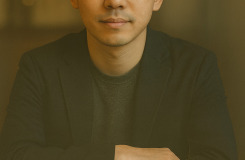 公職勤務/政策研究・防衛行政・文化政策黒乃 流星
公職勤務/政策研究・防衛行政・文化政策黒乃 流星黒乃 流星の記事を見る
-
 会社員宮田 宗知
会社員宮田 宗知宮田 宗知の記事を見る
-
 公益財団法人橋本財団事務局通信
公益財団法人橋本財団事務局通信事務局通信の記事を見る
-
 広島文教大学 教授/スクラムユニオン・ひろしま 執行委員岩下 康子
広島文教大学 教授/スクラムユニオン・ひろしま 執行委員岩下 康子岩下 康子の記事を見る
-
 「ことばの力教室」主宰 子どもの表現力育成アドバイザー/フリーライター・講師二村 昌子
「ことばの力教室」主宰 子どもの表現力育成アドバイザー/フリーライター・講師二村 昌子二村 昌子の記事を見る
-
 受賞作品Opinionsエッセイ
受賞作品OpinionsエッセイOpinionsエッセイの記事を見る
-
 ペンネーム東沖 和季
ペンネーム東沖 和季東沖 和季の記事を見る
-
 ニセコ在住下田 伸一
ニセコ在住下田 伸一下田 伸一の記事を見る
-
 ペンネーム 看護師宇梶 正
ペンネーム 看護師宇梶 正宇梶 正の記事を見る
-
 武蔵野大学大学院大谷 航介
武蔵野大学大学院大谷 航介大谷 航介の記事を見る
-
 一般社団法人村楽東 大史
一般社団法人村楽東 大史東 大史の記事を見る
-
 会社員池松 俊哉
会社員池松 俊哉池松 俊哉の記事を見る
-
 (公財)橋本財団研究助成 成果報告
(公財)橋本財団研究助成 成果報告研究助成 成果報告の記事を見る
-
 横浜市立大学小林 天音
横浜市立大学小林 天音小林 天音の記事を見る
-
 東京西徳洲会病院小児医療センター 小児神経科医師秋谷 進
東京西徳洲会病院小児医療センター 小児神経科医師秋谷 進秋谷 進の記事を見る
-
 公益財団法人地方自治総合研究所 常任研究員坂本 誠
公益財団法人地方自治総合研究所 常任研究員坂本 誠坂本 誠の記事を見る
-
 ペンネームAurora
ペンネームAuroraAuroraの記事を見る
-
 つむぐ株式会社 代表取締役竹村 仁量
つむぐ株式会社 代表取締役竹村 仁量竹村 仁量の記事を見る
-
 岡山大学学術研究院医歯薬学域長谷井 嬢
岡山大学学術研究院医歯薬学域長谷井 嬢長谷井 嬢の記事を見る
-
 ソシエタス総合研究所 研究員Karki Shyam Kumar (カルキ シャム クマル)
ソシエタス総合研究所 研究員Karki Shyam Kumar (カルキ シャム クマル)Karki Shyam Kumar (カルキ シャム クマル)の記事を見る
-
 NPO法人妊娠しぇるとSOS 理事長小林 智子
NPO法人妊娠しぇるとSOS 理事長小林 智子小林 智子の記事を見る
-
 書きたい人のためのwebマガジンOpinions編集部
書きたい人のためのwebマガジンOpinions編集部Opinions編集部の記事を見る
-
 介護福祉士渡口 将生
介護福祉士渡口 将生渡口 将生の記事を見る
-
 相談支援専門員・福祉ネイリストゆき
相談支援専門員・福祉ネイリストゆきゆきの記事を見る
-
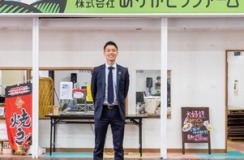 株式会社ありがとうファーム取締役副社長馬場 拓郎
株式会社ありがとうファーム取締役副社長馬場 拓郎馬場 拓郎の記事を見る
-
 ジャーナリスト ペンネームジョワキン
ジャーナリスト ペンネームジョワキンジョワキンの記事を見る
-
 ソシエタス総合研究所 研究員Andi Holik Ramdani(アンディ ホリック ラムダニ)
ソシエタス総合研究所 研究員Andi Holik Ramdani(アンディ ホリック ラムダニ)Andi Holik Ramdani(アンディ ホリック ラムダニ)の記事を見る
-
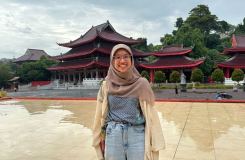 ソシエタス総合研究所 研究員Waode Hanifah Istiqomah(ワオデ ハニファー イスティコマー)
ソシエタス総合研究所 研究員Waode Hanifah Istiqomah(ワオデ ハニファー イスティコマー)Waode Hanifah Istiqomah(ワオデ ハニファー イスティコマー)の記事を見る
-
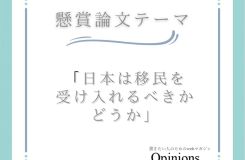 元芝園団地自治会岡﨑 広樹
元芝園団地自治会岡﨑 広樹岡﨑 広樹の記事を見る
-
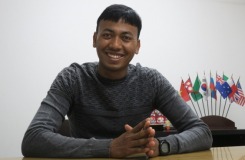 岡山外語学院留学生カーン エムディ マムン
岡山外語学院留学生カーン エムディ マムンカーン エムディ マムンの記事を見る
-
 行政書士板垣 岳人
行政書士板垣 岳人板垣 岳人の記事を見る
-
 Crimson Education教育コンサルタント蘇 暁辰(Xiaochen Su)
Crimson Education教育コンサルタント蘇 暁辰(Xiaochen Su)蘇 暁辰(Xiaochen Su)の記事を見る
-
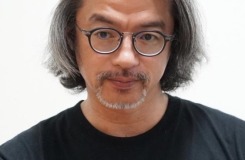 神戸大学准教授斉藤 善久
神戸大学准教授斉藤 善久斉藤 善久の記事を見る
-
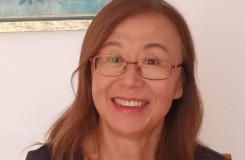 ドイツ在住阿部プッシェル 薫
ドイツ在住阿部プッシェル 薫阿部プッシェル 薫の記事を見る
-
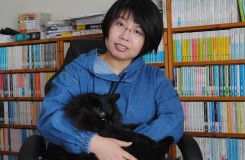 ライター/編集者黒部 麻子
ライター/編集者黒部 麻子黒部 麻子の記事を見る
-
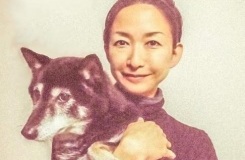 翻訳家田尻 潤子
翻訳家田尻 潤子田尻 潤子の記事を見る
-
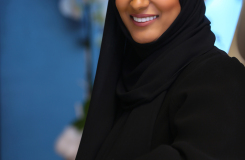 アブダビ環境庁長官 Environment Agency – Abu Dhabi (ead.gov.ae)シャイカ・サレム・アル・ダヘリ
アブダビ環境庁長官 Environment Agency – Abu Dhabi (ead.gov.ae)シャイカ・サレム・アル・ダヘリシャイカ・サレム・アル・ダヘリの記事を見る
-
 元整形外科医/農園主散木洞人
元整形外科医/農園主散木洞人散木洞人の記事を見る
-
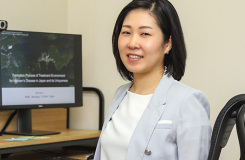 豊橋技術科学大学パク ミンジョン
豊橋技術科学大学パク ミンジョンパク ミンジョンの記事を見る
-
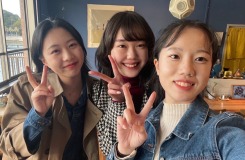 生理革命委員会澤田まりあ、山形萌花、山領珊南
生理革命委員会澤田まりあ、山形萌花、山領珊南澤田まりあ、山形萌花、山領珊南の記事を見る
-
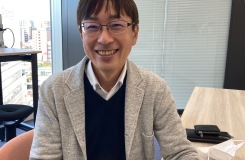 SOMPOケア株式会社藤田 定司
SOMPOケア株式会社藤田 定司藤田 定司の記事を見る
-
 おかやま山陽高等学校橘 里香サニヤ
おかやま山陽高等学校橘 里香サニヤ橘 里香サニヤの記事を見る
-
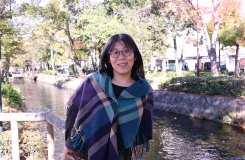 ソシエタス総合研究所 研究員坂入 悦子
ソシエタス総合研究所 研究員坂入 悦子坂入 悦子の記事を見る
-
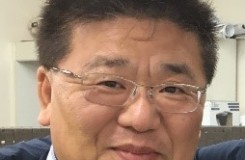 Hiro山下行政書士国際法務事務所 代表山下裕司
Hiro山下行政書士国際法務事務所 代表山下裕司山下裕司の記事を見る
-
 ソシエタス総合研究所 研究員Niklas Holzapfel ホルツ アッペル ニクラス
ソシエタス総合研究所 研究員Niklas Holzapfel ホルツ アッペル ニクラスNiklas Holzapfel ホルツ アッペル ニクラスの記事を見る
-
 サウンドエンジニアEmre・Ekici エムレ・エキジ
サウンドエンジニアEmre・Ekici エムレ・エキジEmre・Ekici エムレ・エキジの記事を見る
-
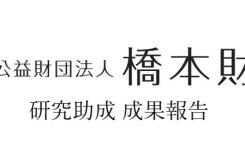 NPO法人岡山県国際団体協議会
NPO法人岡山県国際団体協議会岡山県国際団体協議会の記事を見る
-
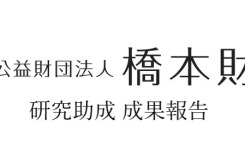 岡山大学 学術研究院 社会文化科学学域 教授東條 光彦
岡山大学 学術研究院 社会文化科学学域 教授東條 光彦東條 光彦の記事を見る
-
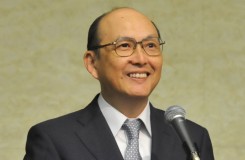 福岡大学 名誉教授田村 和夫
福岡大学 名誉教授田村 和夫田村 和夫の記事を見る
-
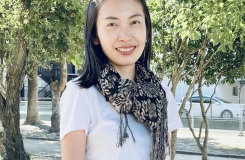 ソシエタス総合研究所 研究員相川 真穂
ソシエタス総合研究所 研究員相川 真穂相川 真穂の記事を見る
-
 一般社団法人京都総合科学研究所 アドバイザー松村 道郎
一般社団法人京都総合科学研究所 アドバイザー松村 道郎松村 道郎の記事を見る
-
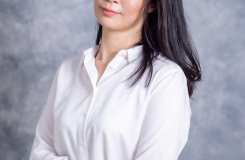 ワラム株式会社 代表取締役加藤 侑子
ワラム株式会社 代表取締役加藤 侑子加藤 侑子の記事を見る
-
 岡山市立操南中学校 教諭/NPO法人国際協力研究所・岡山代表理事竹島 潤
岡山市立操南中学校 教諭/NPO法人国際協力研究所・岡山代表理事竹島 潤竹島 潤の記事を見る
-
 新西横浜街の予防医療ケア研究室 保健師・看護師・元先端バイオ創薬ベンチャー取締役五十嵐 直敬
新西横浜街の予防医療ケア研究室 保健師・看護師・元先端バイオ創薬ベンチャー取締役五十嵐 直敬五十嵐 直敬の記事を見る
-
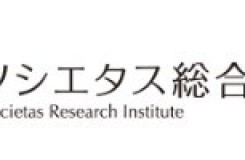 共著橋本俊明・秋吉湖音
共著橋本俊明・秋吉湖音橋本俊明・秋吉湖音の記事を見る
-
 ライター菊池 洋勝
ライター菊池 洋勝菊池 洋勝の記事を見る
-
 大東文化大学国際関係学部・特任教授 高崎経済大学経済学部・非常勤講師 目白大学経営学部経営学科&目白大学大学院経営学研究科 非常勤講師 長崎県佐世保市役所 経済活性化~産業振興に関するアドバイザー、博士(経済学)江崎 康弘
大東文化大学国際関係学部・特任教授 高崎経済大学経済学部・非常勤講師 目白大学経営学部経営学科&目白大学大学院経営学研究科 非常勤講師 長崎県佐世保市役所 経済活性化~産業振興に関するアドバイザー、博士(経済学)江崎 康弘江崎 康弘の記事を見る
-
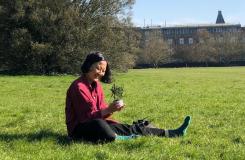 ソシエタス総合研究所 研究員秋吉 湖音
ソシエタス総合研究所 研究員秋吉 湖音秋吉 湖音の記事を見る
-
 JICA専門家足立 伸也
JICA専門家足立 伸也足立 伸也の記事を見る
-
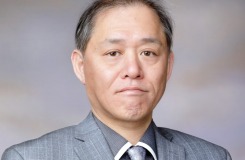 富士通株式会社 第三ファイナンス事業本部 シニアマネージャー安留 義孝
富士通株式会社 第三ファイナンス事業本部 シニアマネージャー安留 義孝安留 義孝の記事を見る
-
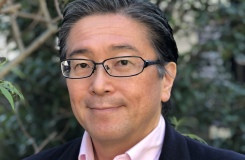 EDAS(イーダス)理事長田村 拓
EDAS(イーダス)理事長田村 拓田村 拓の記事を見る
-
 監督・プロデューサー湯浅 典子
監督・プロデューサー湯浅 典子湯浅 典子の記事を見る
-
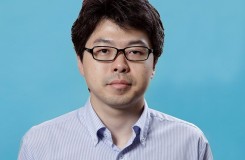 日本経済大学 准教授山下 誠矢
日本経済大学 准教授山下 誠矢山下 誠矢の記事を見る
-
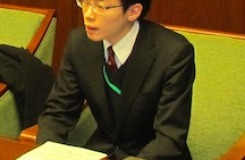 人と医療の研究室 代表池尻 達紀
人と医療の研究室 代表池尻 達紀池尻 達紀の記事を見る
-
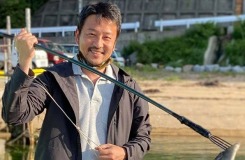 一般社団法人飛島学園 代表理事堂野 博之
一般社団法人飛島学園 代表理事堂野 博之堂野 博之の記事を見る
-
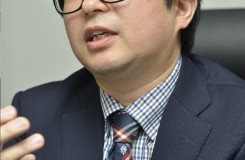 ニッセイ基礎研究所 生活研究部 主任研究員、ヘルスケアリサーチセンター・ジェロントロジー推進室兼任金 明中
ニッセイ基礎研究所 生活研究部 主任研究員、ヘルスケアリサーチセンター・ジェロントロジー推進室兼任金 明中金 明中の記事を見る
-
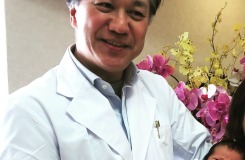 医療法人財団足立病院 理事長、社会福祉法人あだち福祉会 理事長畑山 博
医療法人財団足立病院 理事長、社会福祉法人あだち福祉会 理事長畑山 博畑山 博の記事を見る
-
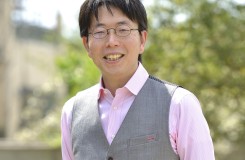 教育研究家、合同会社ライフ&ワーク代表妹尾 昌俊
教育研究家、合同会社ライフ&ワーク代表妹尾 昌俊妹尾 昌俊の記事を見る
-
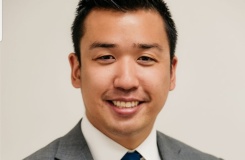 ハーバード大学ベス・イスラエル・ディーコネス・メディカルセンター、高度消化管/最小侵襲外科フェロー中元 啓太郎
ハーバード大学ベス・イスラエル・ディーコネス・メディカルセンター、高度消化管/最小侵襲外科フェロー中元 啓太郎中元 啓太郎の記事を見る
-
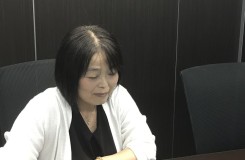 ソシエタス総合研究所 主任研究員井上 登紀子
ソシエタス総合研究所 主任研究員井上 登紀子井上 登紀子の記事を見る
-
 ソシエタス総合研究所 研究員松田 郁乃
ソシエタス総合研究所 研究員松田 郁乃松田 郁乃の記事を見る
-
 ソシエタス総合研究所 研究員アイシェ・ウルグン・ソゼン Ayse Ilgin Sozen
ソシエタス総合研究所 研究員アイシェ・ウルグン・ソゼン Ayse Ilgin Sozenアイシェ・ウルグン・ソゼン Ayse Ilgin Sozenの記事を見る
-
 NPO法人岡山市子どもセンター 事務局久川 春菜
NPO法人岡山市子どもセンター 事務局久川 春菜久川 春菜の記事を見る
-
 ユースワーカー(Youth Woker)森分 志学
ユースワーカー(Youth Woker)森分 志学森分 志学の記事を見る
-
 ペンネーム三村 喜久雄
ペンネーム三村 喜久雄三村 喜久雄の記事を見る
-
 ペンネーム黒木 洋一郎
ペンネーム黒木 洋一郎黒木 洋一郎の記事を見る
-
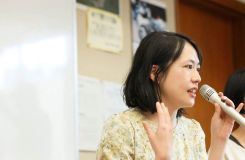 NPO法人チャリティーサンタ 理事河津 泉
NPO法人チャリティーサンタ 理事河津 泉河津 泉の記事を見る
-
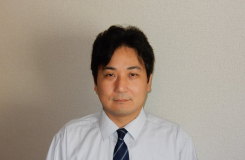 金沢大学人間社会学域地域創造学類・准教授 、特定非営利活動法人国土利用再編研究所・理事長林 直樹
金沢大学人間社会学域地域創造学類・准教授 、特定非営利活動法人国土利用再編研究所・理事長林 直樹林 直樹の記事を見る
-
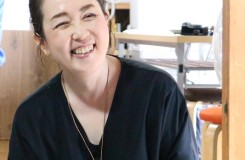 認定NPO法人ペアレント・サポートすてっぷ理事長安藤希代子
認定NPO法人ペアレント・サポートすてっぷ理事長安藤希代子安藤希代子の記事を見る
-
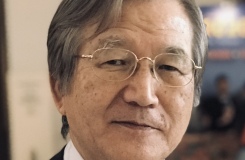 カリフォルニア大学サンフランシスコ校小児胸部心臓外科教授佐野俊二
カリフォルニア大学サンフランシスコ校小児胸部心臓外科教授佐野俊二佐野俊二の記事を見る
-
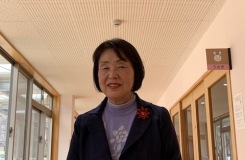 社会福祉法人 旭川荘 ひらたえがお保育園 園長江田 加代子
社会福祉法人 旭川荘 ひらたえがお保育園 園長江田 加代子江田 加代子の記事を見る
-
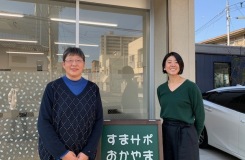 NPO法人 おかやまUFE 副理事長 ・NPO法人 おかやまUFE 事務局阪井 ひとみ・永松千恵
NPO法人 おかやまUFE 副理事長 ・NPO法人 おかやまUFE 事務局阪井 ひとみ・永松千恵阪井 ひとみ・永松千恵 の記事を見る
-
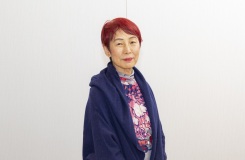 社会学者 東京大学名誉教授 認定NPO法人ウィメンズアクションネットワーク(WAN)理事長 上野 千鶴子
社会学者 東京大学名誉教授 認定NPO法人ウィメンズアクションネットワーク(WAN)理事長 上野 千鶴子上野 千鶴子 の記事を見る
-
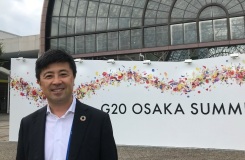 外務省 国際保健政策室長 鷲見 学
外務省 国際保健政策室長 鷲見 学鷲見 学の記事を見る
-
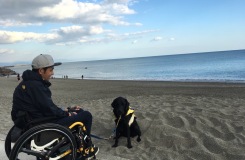 プロ・アダプティブ・サーファー藤原(旧姓:川上)智貴
プロ・アダプティブ・サーファー藤原(旧姓:川上)智貴藤原(旧姓:川上)智貴の記事を見る
-
 京都大学霊長類研究所 教授正高信男
京都大学霊長類研究所 教授正高信男正高信男の記事を見る
-
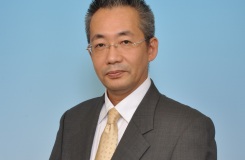 社会医療法人石川記念会HITO病院緩和ケア内科統括部長大坂巌
社会医療法人石川記念会HITO病院緩和ケア内科統括部長大坂巌大坂巌の記事を見る
-
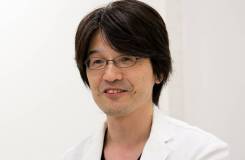 東京医療学院大学保健医療学部教授上田 諭
東京医療学院大学保健医療学部教授上田 諭上田 諭の記事を見る
-
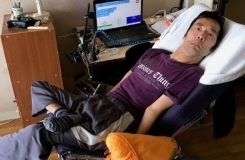 「夢を叶える145」ライター宮村孝博
「夢を叶える145」ライター宮村孝博宮村孝博の記事を見る
-
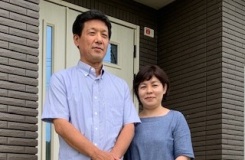 NPO法人 Anneの家 代表 美作地区里親会会員松本芳也・淳子夫妻
NPO法人 Anneの家 代表 美作地区里親会会員松本芳也・淳子夫妻松本芳也・淳子夫妻の記事を見る
-
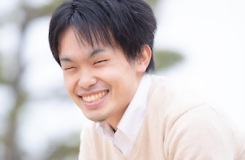 特定非営利活動法人あかね 代表理事中山 遼
特定非営利活動法人あかね 代表理事中山 遼中山 遼の記事を見る
-
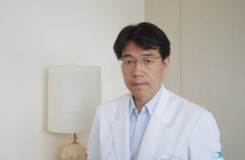 大阪市立総合医療センター 緩和医療科部長 兼 緩和ケアセンター長 大阪市立大学医学部臨床准教授 一般社団法人「こどものホスピスプロジェクト」常務理事 日本小児科学会専門医 英国カーディフ大学緩和ケア認定医(Certificate in Palliative Care) 日本緩和医療学会暫定多田羅竜平
大阪市立総合医療センター 緩和医療科部長 兼 緩和ケアセンター長 大阪市立大学医学部臨床准教授 一般社団法人「こどものホスピスプロジェクト」常務理事 日本小児科学会専門医 英国カーディフ大学緩和ケア認定医(Certificate in Palliative Care) 日本緩和医療学会暫定多田羅竜平多田羅竜平の記事を見る
-
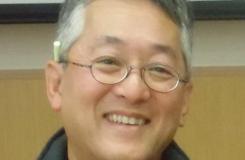 NPO法人 岡山マインド「こころ」/代表理事 一般社団法人お互いさま・まびラボ/副代表理事多田伸志
NPO法人 岡山マインド「こころ」/代表理事 一般社団法人お互いさま・まびラボ/副代表理事多田伸志多田伸志の記事を見る
-
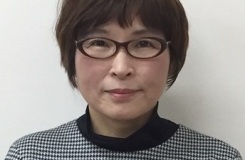 一般社団法人MY TREE代表理事 MY TREEペアレンツ・プログラムスーパーバイザー 認定フェミニストカウンセラー (公認心理師)中川和子
一般社団法人MY TREE代表理事 MY TREEペアレンツ・プログラムスーパーバイザー 認定フェミニストカウンセラー (公認心理師)中川和子中川和子の記事を見る
-
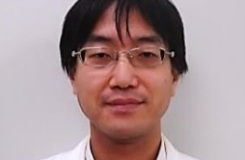 兵庫県立ひょうごこころの医療センター精神科医師小田 陽彦
兵庫県立ひょうごこころの医療センター精神科医師小田 陽彦小田 陽彦の記事を見る
-
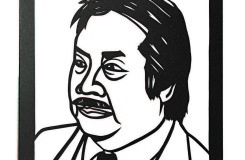 独立行政法人国立病院機構福山医療センター院長岩垣博己・堀井城一朗・矢野 平
独立行政法人国立病院機構福山医療センター院長岩垣博己・堀井城一朗・矢野 平岩垣博己・堀井城一朗・矢野 平の記事を見る
-
 岡山大学 教授 文学部長田中 共子
岡山大学 教授 文学部長田中 共子田中 共子の記事を見る
-
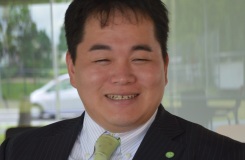 Civil Engineer (仕組みつくりの技術者)石田篤史
Civil Engineer (仕組みつくりの技術者)石田篤史石田篤史の記事を見る
-
 一般財団法人キヤノングローバル戦略研究所 研究主幹・経済学博士松山幸弘
一般財団法人キヤノングローバル戦略研究所 研究主幹・経済学博士松山幸弘松山幸弘の記事を見る
-
 岡山大学生殖補助医療技術教育研究センター ART教育研究部門長・教授舟橋 弘晃
岡山大学生殖補助医療技術教育研究センター ART教育研究部門長・教授舟橋 弘晃舟橋 弘晃の記事を見る
-
 医療法人サンズ理事長浅野 直
医療法人サンズ理事長浅野 直浅野 直の記事を見る
-
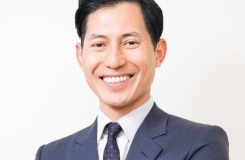 株式会社ヘリオス 代表執行役社長CEO鍵本忠尚
株式会社ヘリオス 代表執行役社長CEO鍵本忠尚鍵本忠尚の記事を見る
-
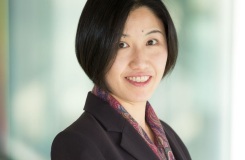 慶應義塾大学文学部人間科学専攻教授(医療人類学) McGill大学人類学部・医療社会研究学部Ph.D.北中淳子
慶應義塾大学文学部人間科学専攻教授(医療人類学) McGill大学人類学部・医療社会研究学部Ph.D.北中淳子北中淳子の記事を見る
-
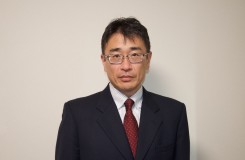 岡山大学病院 緩和支持医療科片山英樹
岡山大学病院 緩和支持医療科片山英樹片山英樹の記事を見る
-
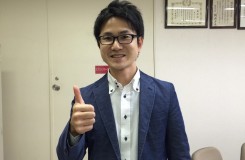 岡山市役所 保健福祉企画総務課松岡克朗
岡山市役所 保健福祉企画総務課松岡克朗松岡克朗の記事を見る
-
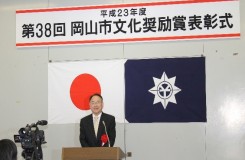 近現代史研究家青木康嘉
近現代史研究家青木康嘉青木康嘉の記事を見る
-
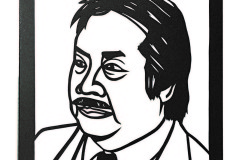 独立行政法人国立病院機構福山医療センター院長岩垣博己・長谷川利路・中島正勝
独立行政法人国立病院機構福山医療センター院長岩垣博己・長谷川利路・中島正勝岩垣博己・長谷川利路・中島正勝の記事を見る
-
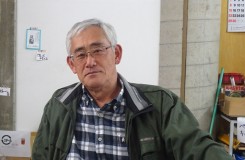 岡山高等学院 副校長 水野文一郎
岡山高等学院 副校長 水野文一郎水野文一郎の記事を見る
-
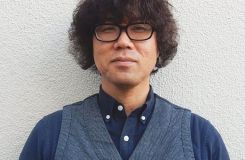 社会の仕組み屋、社会の編集者石原 達也
社会の仕組み屋、社会の編集者石原 達也石原 達也の記事を見る
-
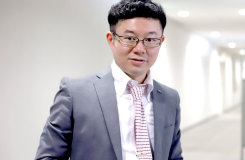 一般社団法人SGSG理事長/中国学園大学子ども学部講師野村泰介
一般社団法人SGSG理事長/中国学園大学子ども学部講師野村泰介野村泰介の記事を見る
-
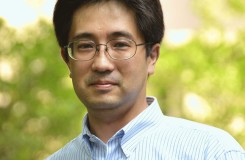 一橋大学経済研究所 教授神林 龍
一橋大学経済研究所 教授神林 龍神林 龍の記事を見る
-
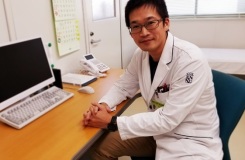 特定医療法人自由会 理事 (社会福祉法人敬友会 理事、公益財団法人橋本財団 理事)橋本 健二
特定医療法人自由会 理事 (社会福祉法人敬友会 理事、公益財団法人橋本財団 理事)橋本 健二橋本 健二の記事を見る
-
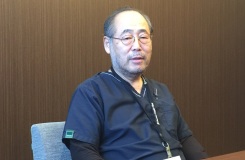 医療法人社団 岡山二人クリニック 理事長、医学博士林 伸旨
医療法人社団 岡山二人クリニック 理事長、医学博士林 伸旨林 伸旨の記事を見る
-
 フリーライター渡辺嗣郎(わたなべ しろう)
フリーライター渡辺嗣郎(わたなべ しろう)渡辺嗣郎(わたなべ しろう)の記事を見る
-
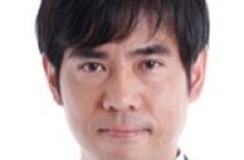 国立大学法人岡山大学 副理事(国際担当)横井 篤文
国立大学法人岡山大学 副理事(国際担当)横井 篤文横井 篤文の記事を見る
-
 ペンネームドクターX
ペンネームドクターXドクターXの記事を見る
-
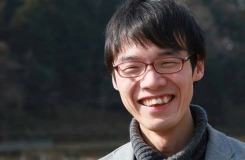 NPO法人 山村エンタープライズ 代表理事藤井裕也
NPO法人 山村エンタープライズ 代表理事藤井裕也藤井裕也の記事を見る
-
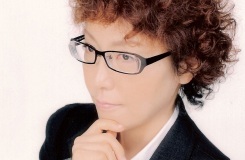 キャンサー・ソリューションズ株式会社 代表取締役社長桜井 なおみ
キャンサー・ソリューションズ株式会社 代表取締役社長桜井 なおみ桜井 なおみの記事を見る
-
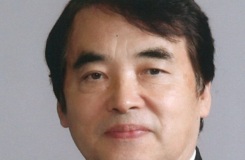 AMDA(アムダ) グループ代表・認定非営利活動法人AMDA 理事長菅波 茂
AMDA(アムダ) グループ代表・認定非営利活動法人AMDA 理事長菅波 茂菅波 茂の記事を見る
-
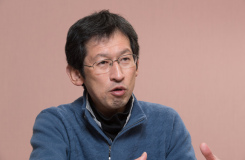 ふれあい歯科ごとう代表五島 朋幸
ふれあい歯科ごとう代表五島 朋幸五島 朋幸の記事を見る
-
 介護従事者髙田 浩一
介護従事者髙田 浩一髙田 浩一の記事を見る
-
 ケアマネ-ジャー・社会福祉士かえる ちから
ケアマネ-ジャー・社会福祉士かえる ちからかえる ちからの記事を見る
-
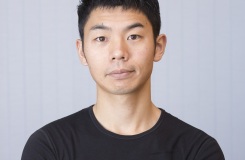 五常・アンド・カンパニー株式会社 代表取締役社長慎 泰俊
五常・アンド・カンパニー株式会社 代表取締役社長慎 泰俊慎 泰俊の記事を見る
-
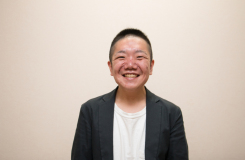 NPO法人 ポケットサポート代表理事三好 祐也
NPO法人 ポケットサポート代表理事三好 祐也三好 祐也の記事を見る
-
 医療法人 寺田病院 院長板野 聡
医療法人 寺田病院 院長板野 聡板野 聡の記事を見る
-
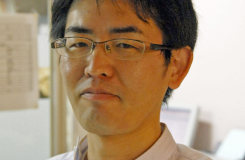 鳥取市立病院 地域医療総合支援センター 生活支援室 副室長、リハビリテーション部 副部長、歯科 医長目黒 道生
鳥取市立病院 地域医療総合支援センター 生活支援室 副室長、リハビリテーション部 副部長、歯科 医長目黒 道生目黒 道生の記事を見る
-
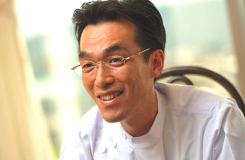 鳥取市立病院地域医療総合支援センター長 鳥取市福祉部参与足立 誠司
鳥取市立病院地域医療総合支援センター長 鳥取市福祉部参与足立 誠司足立 誠司の記事を見る
-
 ペンネーム池井戸 高志
ペンネーム池井戸 高志池井戸 高志の記事を見る
-
 ペンネーム池田 出水
ペンネーム池田 出水池田 出水の記事を見る
-
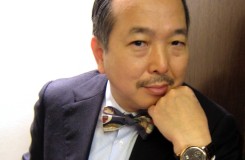 岡山大学大学院ヘルスシステム統合科学研究科教授松岡 順治
岡山大学大学院ヘルスシステム統合科学研究科教授松岡 順治松岡 順治の記事を見る
-
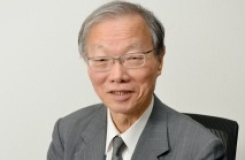 鳥取市立病院 名誉院長田中 紀章
鳥取市立病院 名誉院長田中 紀章田中 紀章の記事を見る
-
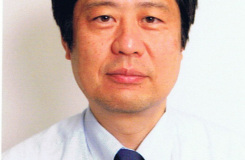 岡山大学大学院保健学研究科 副研究科長 教授齋藤 信也
岡山大学大学院保健学研究科 副研究科長 教授齋藤 信也齋藤 信也の記事を見る
-
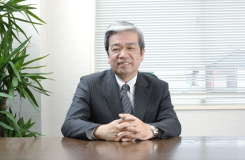 公益財団法人橋本財団 理事長、医学博士橋本 俊明
公益財団法人橋本財団 理事長、医学博士橋本 俊明橋本 俊明の記事を見る

